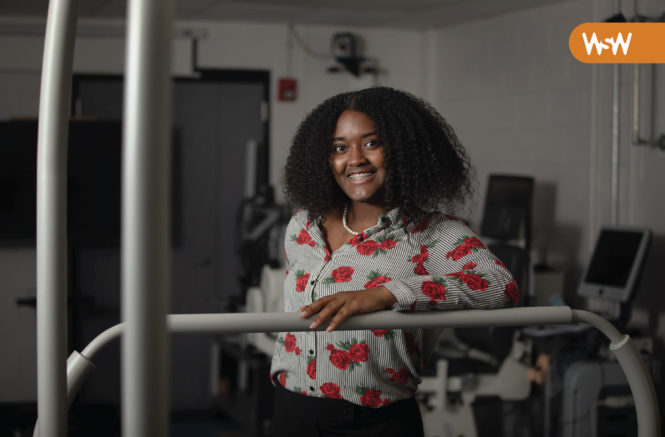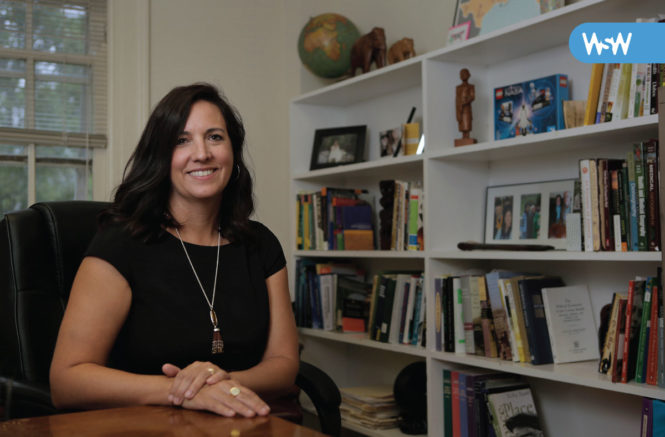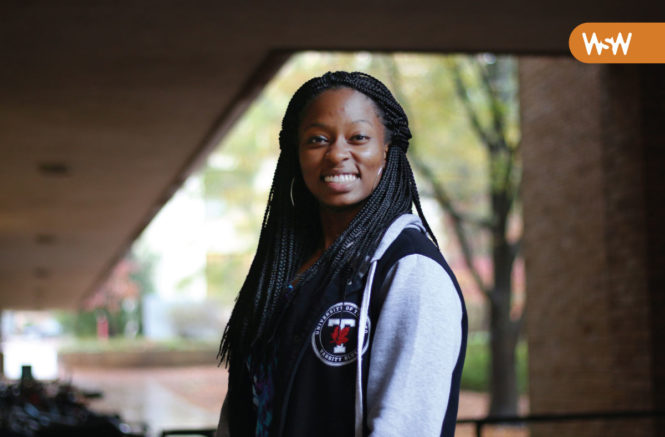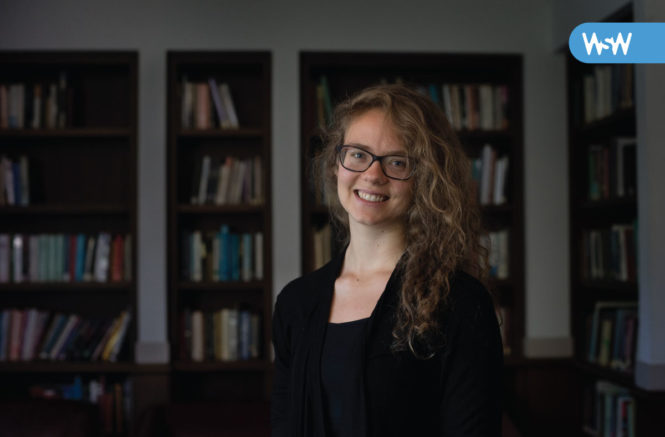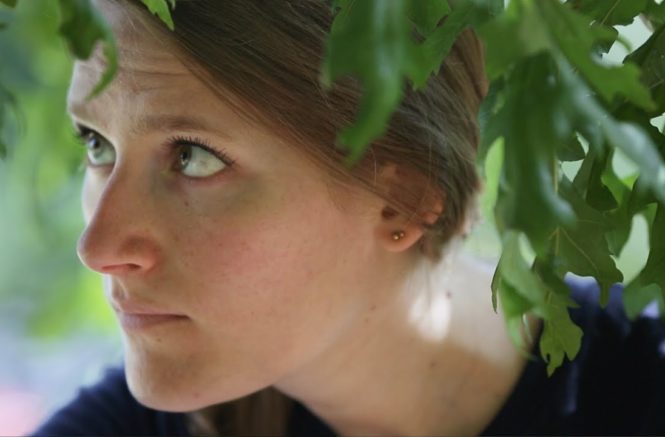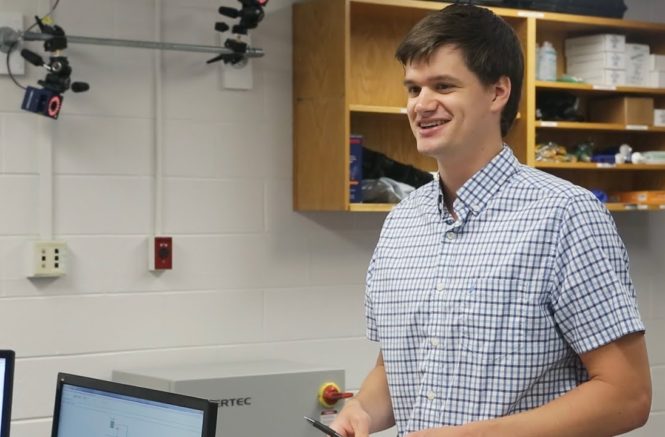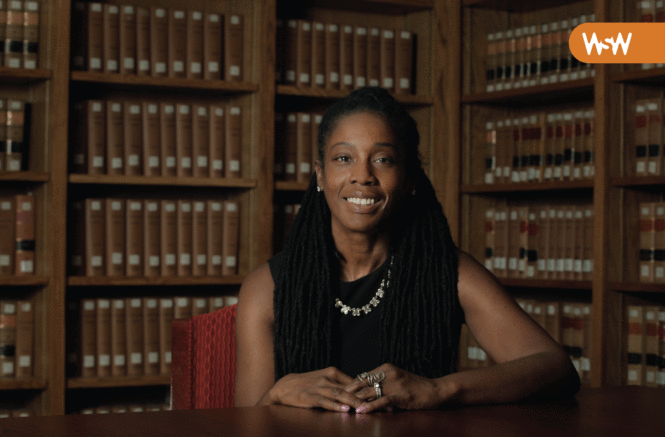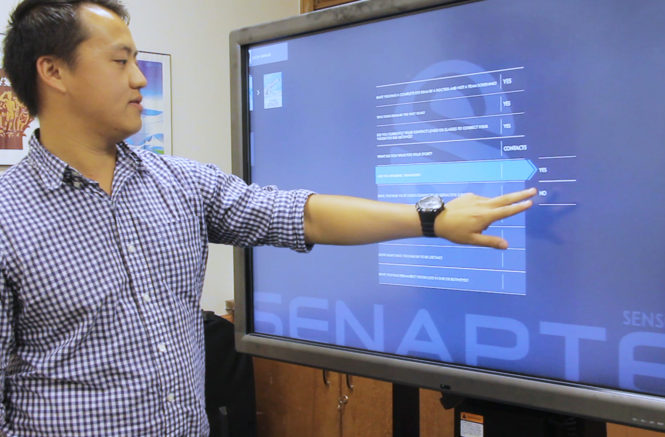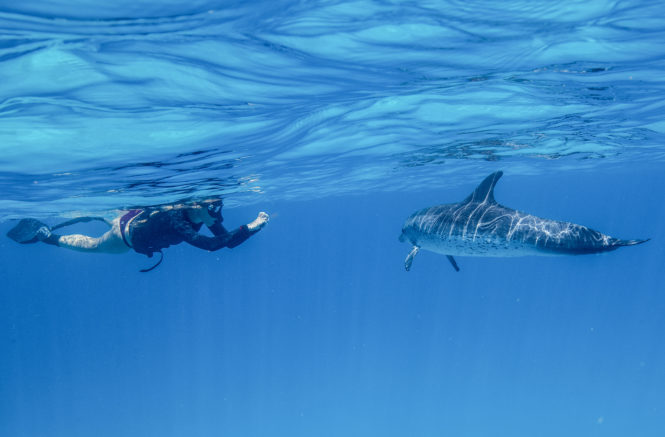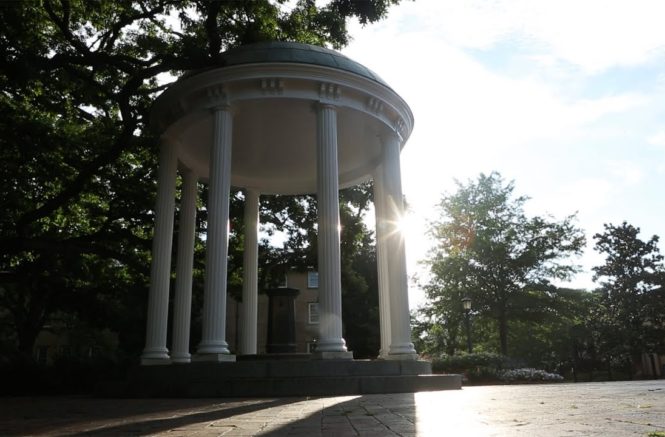Keyaira Crudup
Keyaira Crudup is a junior majoring in biomedical and health sciences engineering within the UNC/NC State Joint Department of Biomedical Engineering. Her research focuses on improving the walking speed of aging individuals by training them to increase the amount of force they use to push themselves forward.
Ashley Ward
Ashley Ward is the climate integration and outreach associate for the National Oceanic and Atmospheric Administration’s Regional Integrated Sciences and Assessments program, based out of the Department of Geography within the UNC College of Arts & Sciences. Her research focuses on identifying and increasing awareness of the health impacts from extreme climate events in the Carolinas.
Ready, Set, Brake
While autonomous vehicles begin to appear on roadways, gaps in knowledge are blocking the way to their full integration. Researchers at UNC are asking the tough questions to ensure that the driverless car picking you up will be safe for passengers, bicyclists, and pedestrians alike.
Kira Griffith
Kira Griffith is a sophomore majoring in neuroscience within the UNC College of Arts & Sciences. Her research focuses on understanding the effects of music on the brain. Specifically, she strives to learn why music therapy seems to benefit so many people of all ages and with varying sets of neurological conditions.
Lisa Bauer
Lisa Bauer is a PhD student in the Department of Computer Science within the UNC College of Arts & Sciences. Her research focuses on enhancing a machine’s ability to reason and use common sense as it reads to improve technology products like intelligent tutoring or care devices.
In Your Backyard
Allison Duprey and Andrew Zachman experience new opportunities through hands-on fieldwork — right here, on UNC’s campus.
Stepping Into the Lab
Jackson Richards learns how to build a successful research project and implement skills acquired in the classroom.
Erika Wilson
Erika Wilson is the Thomas Willis Lambeth Distinguished Professor in Public Policy within the UNC School of Law. Her research focuses on the ways in which laws and policies that don’t explicitly mention race are used to create, maintain, and perpetuate racial segregation and inequality, particularly in public schools.
Just Jump In
Kou Yang lets curiosity guide him into the research lab at the Gfeller Center, where he’s uncovered his desire to become an athletic trainer.
Coastal Connections
Liah McPherson accidentally got involved in research at UNC when she tried to enroll in a graduate class as a freshman — an experience that’s led her to new colleagues and fostered her love of dolphins.
An Unforgettable Experience
This week, UNC celebrates University Research Week — an annual campus-wide event packed with lectures, workshops, and undergraduate research stories designed to promote awareness of research opportunities at Carolina.
Carpe Datum
Every day, humans create 2.5 quintillion bytes of data. How do we protect, store, and transfer it all? A team at RENCI has spent the last decade developing the Swiss Army knife of data management, called iRODS, that does all those things — and it’s used by a variety of institutions across the globe.



